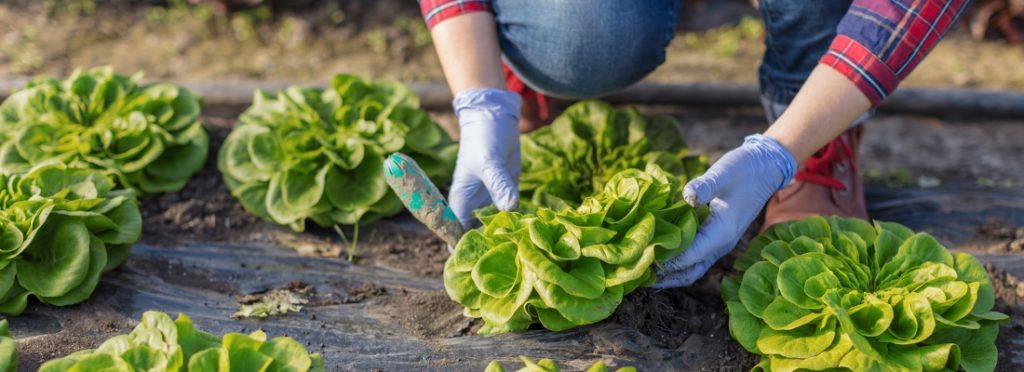Sep 17, 2020Specialty crops industry may get tools to effectively manage food safety risks
Outbreaks of foodborne diseases threaten the daily lives of millions of Americans, resulting in recalls and sometimes loss of life. Providing an integrated food safety system for fresh fruits and vegetables that protects the food supply through production, harvest, and processing is the goal of a recently awarded multi-million project led by University of Florida professors.
The $7.265 million, four-year grant awarded by the United State Department of Agriculture (USDA) National Institute of Food and Agriculture (NIFA), involves what the project’s lead scientist considers a “dream team” of food safety researchers from 10 universities across the country and the USDA Agricultural Research Service.
Michelle Danyluk, a UF Institute of Food and Agricultural Sciences professor in the department of food science and human nutrition, leads the research, along with Keith Schneider and Arie Havelaar, both also with UF/IFAS. UF researchers Naim Montazeri, Matt Krug, KC Jeong and Rafael Munoz-Carpena are also involved with the project.
“This proposal was specifically developed to respond to a critical national problem that is dramatically affecting specialty crop producers and processors: food safety and implementation of new federal food safety regulations,” said Danyluk. “The long-term goal is to provide the industry with tools to effectively manage food safety risks while making the most efficient use of available resources. We also hope to reduce the public health and economic impact of produce-associated outbreaks and recalls using a systems-based decision making and cost-effectiveness analysis.”
“The potential benefits from this project have a significant impact for growers and overall public health,” Danyluk explained.
Anticipated outcomes include:
- reducing produce-related outbreaks, illnesses, and food recalls and hence increasing consumer and export market confidence;
- enhancing the financial stability of farmers due to increased confidence in microbial safety of their crops and products;
- enhancing the economic sustainability of the produce industry in the United States;
- improving public health outcomes while reducing compliance costs by efficient produce safety management;
- providing a scientific basis for optimizing the control of microbial food safety threats at the agricultural production level while maintaining the critical role that agricultural lands play in beneficial ecological systems; and
- establishing scientific knowledge and data needed by regulatory agencies during the implementation of produce safety regulations.
The project will explore many of what scientists call the “control points” for fresh produce production and develop models and case studies to help growers and other stakeholders identify the consequences of different actions that will make a difference to fresh produce safety.
Researchers will focus on how to mitigate pathogenic microorganisms, including bacteria, parasitic, and viral pathogens, and those pathogens’ impact on food safety risks. Focus will be on the impact of agricultural water and biological soil amendments during production, produce in contact with the ground, animal intrusion in crops, and post-harvest cross-contamination. The team will identify the most important factors that drive risk and which factors are candidates for change.
Scientists will create case studies and on-line models to help growers and others in the supply chain assess the impact of their decisions. The work will include diverse farms and facilities of varying sizes, including consideration of both conventional and organic practices, and crops grown close to and above the soil (including cucurbits, berries, and tree fruit in addition to leafy greens and tomatoes) as well as root crops (onions).
Costs to the industry from foodborne illness events include confiscation and destruction of foods, clean-up efforts, lost reputation, and litigation costs. Firms can use results from this research to prioritize food safety mitigation efforts, and policymakers will have a better understanding of industry costs enabling them to design interventions that build on (rather than conflict with) market incentives. The design of incentive-compatible policy interventions will improve regulatory compliance and reduce enforcement costs.
– Ruth Borger, University of Florida















